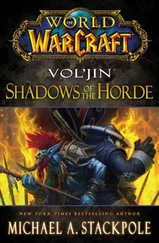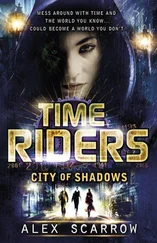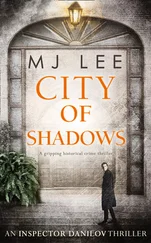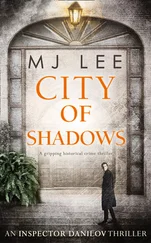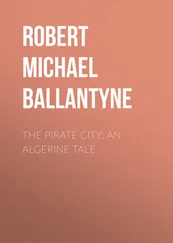Michael Russell - The City of Shadows
Здесь есть возможность читать онлайн «Michael Russell - The City of Shadows» — ознакомительный отрывок электронной книги совершенно бесплатно, а после прочтения отрывка купить полную версию. В некоторых случаях можно слушать аудио, скачать через торрент в формате fb2 и присутствует краткое содержание. Жанр: Исторический детектив, на английском языке. Описание произведения, (предисловие) а так же отзывы посетителей доступны на портале библиотеки ЛибКат.
- Название:The City of Shadows
- Автор:
- Жанр:
- Год:неизвестен
- ISBN:нет данных
- Рейтинг книги:5 / 5. Голосов: 1
-
Избранное:Добавить в избранное
- Отзывы:
-
Ваша оценка:
- 100
- 1
- 2
- 3
- 4
- 5
The City of Shadows: краткое содержание, описание и аннотация
Предлагаем к чтению аннотацию, описание, краткое содержание или предисловие (зависит от того, что написал сам автор книги «The City of Shadows»). Если вы не нашли необходимую информацию о книге — напишите в комментариях, мы постараемся отыскать её.
The City of Shadows — читать онлайн ознакомительный отрывок
Ниже представлен текст книги, разбитый по страницам. Система сохранения места последней прочитанной страницы, позволяет с удобством читать онлайн бесплатно книгу «The City of Shadows», без необходимости каждый раз заново искать на чём Вы остановились. Поставьте закладку, и сможете в любой момент перейти на страницу, на которой закончили чтение.
Интервал:
Закладка:
The radio was still silent except for a crackle of static. The station wasn’t ready for such a short speech. It was quiet in the Danziger Hof too. The idea that the result was not the triumph that had been proclaimed beforehand was in every mind, but no one wanted to be the first to say it. Abruptly there was music again as a needle fell heavily on to a record. It was Beethoven’s Ninth Symphony. In the ballroom the band took it as a cue. For a few moments Beethoven vied with ‘The Sun Has Got His Hat On’; then the radio was switched off. The buzz of conversation started up at the same time, concerned and surprised and puzzled under the safe, muffling music. Hannah and Stefan turned back to the staircase. A waiter was beside them, with an ice bucket and a bottle of champagne. He smiled a conspiratorial smile.
‘So what happened?’ asked Stefan.
‘Fifty-nine per cent.’ The waiter’s whisper was conspiratorial too; he grinned happily. ‘That’s not much more than they got in the last election.’
‘Why don’t I take that?’ Stefan picked up the bottle of champagne.
‘Help yourself. It’s their money.’
Stefan and Hannah continued up the stairs. She put her arm through his as she had that night in Grafton Street, but there was something more intimate about it now; perhaps it was because all either of them wanted to do was sleep. Downstairs the sense that everything had not gone to plan was already disappearing. Triumph was required and triumph would be delivered. Their faith was in their Fuhrer and their day was coming. The dance floor was full; the corks were popping; everyone was singing. There was no syncopation; the rhythm was a fast, flat march. It was swaggering, insistent, joyless, brutal, mindless, remorseless, irresistible. It would carry on long into the night. ‘He’s been tanning niggers out in Timbuktu, now he’s coming back to do the same to you. So jump into your sunbath, hip-hip-hip-hooray, the sun has got his hat on and he’s coming out today!’
They left the next morning, on the seaplane to Kalmar and Stockholm. As there was now no one in Danzig or Berlin who had ever known anything about a plot to kill Bishop Edward O’Rourke, there was no one with any interest in either Hannah Rosen or Stefan Gillespie. But Sean Lester thought it was still better for them not to travel home through Germany. There were always lists and there were always Nazis with their own view of what working towards the Fuhrer meant. At around the same time as they moved out on to the Dead Vistula from the seaplane station, Father Francis Byrne was being interred in the cathedral cemetery at Oliva. The bodies of Johannes Berent and Leon Kamnitzer, now surplus to requirements, were never found. They had been dumped somewhere in the forests above Danzig. Hugo Keller would find an unmarked grave in Langfuhr. The man called Karl was buried in the cemetery in Oliva too, close to Francis Byrne, after a requiem Mass at the cathedral. His family was given no explanation about where he died or why he had a bullet hole through the back of his head. Kriminaloberassistent Rothe was buried with full Party honours, and after the funeral, to mark his passing, a journalist from the Social Democrat Danziger Volstimme very carelessly fell under a tram and died. It was the least Rothe’s friends could do. The Nazis still ruled Danzig, but Lester was there too, so was O’Rourke; and somehow enough people had braved the thugs at the polling stations to keep the Free City alive for a few more years.
Now, as the Dornier Delphin lifted up from the muddy waters of the Dead Vistula and banked over Danzig, the sun was shining. Hannah and Stefan looked down. It seemed peaceful enough. But there was no peace of course, and there would be no peace to come. In less than five years Sean Lester would be gone, along with the city’s obstreperous Russian-Irish bishop. The first shots of the Second World War would be fired at the Polish fort on the Westerplatte by a German battleship in the Tote Weichsel. Most of Danzig’s Jews would have left by then; the Great Synagogue would be razed to the ground so no sign of its existence remained. Some of the Free City’s Jews would find safety, but many would simply be rounded up by the Nazis later, somewhere else in Europe, and sent to the ghettos and death camps. In less than ten years the German city of Danzig would be reduced to smouldering rubble by the guns and bombs of the Red Army. A quarter of its population would die in the battle for the city and in the forced marches and deportations that followed. No one would be very interested in mourning them. It was their war after all. And when the city was built again, German brick by German brick, it would be as the Polish city of Gda?nsk; it would only look like the German city of Danzig that once stood in exactly the same place. And the language that had filled its streets and buildings for five hundred years would disappear, along with the people who had once lived there. In all the rebuilding, though, no one would ever bother to rebuild the synagogue.
PART THREE
Freemasonry, the Jews and Communism were among the subjects discussed by the Rev. D. Fahey, C.S.Sp., D.D., in the course of a paper entitled ‘Will Ireland Remain Faithful to Christ the King?’ which he read before delegates to the Catholic Young Men’s Society Convention, at the Gresham Hotel … Wherever, in any country, he said, men had thrown themselves into the stream, of which the agents of Communism controlled the current, the end was slavery under Jewish finance, with the obliteration of the Christian family and the Catholic idea of native land … These truths must be borne in mind in connection with the rapid increase in numbers, power and wealth of the Jews in Dublin.
The Irish Times21. Glenmalure
Wicklow, April 1935
The field behind the house at Kilranelagh was full of sheep. On one side, penned tightly and bleating noisily, were the grubby, thick-woolled ewes waiting to be sheared; on the other were the newly shorn, bewildered by their sudden weightlessness, their gleaming white coats flecked here and there with blood. It was the day after Stefan Gillespie’s return from Danzig, but nothing, not even Tom’s excitement, could stand in the way of the shearing. The Farrell brothers would be there from the break of day, when the sheep were brought in from the fields, until the last one was clipped, late that afternoon. Stefan and his father carried ewe after struggling ewe from the pens to the thudding Lister engine that drove the shearing heads. The smell of diesel mixed with the smell of the animals. Their clothes reeked of sticky lanolin and sheep shit. Now the sun was almost overhead. Half the flock had been clipped and they would soon stop for dinner. Stefan looked up to wipe the sweat from his eyes. He saw the bent figure of Emmet Brady walking through the field towards him, leaning on his stick. It was four months since they had first talked about Tom. The threat from Father Carey and the Church had been brooding over the farm all that time. It was never quite forgotten, but for a time the business of life had pushed it away.
Stefan and the solicitor walked away from the noise of the shearing, saying nothing. David Gillespie watched them as he carried on his work.
‘I’m sorry, I’m not a very welcome guest, Stefan,’ said Brady finally.
‘I thought after all this time — ’
‘They won’t let it go. You have the choice you had before, to go along with it and send Tom to his uncle and aunt’s, or they’ll take it to court. I think they’ll move quite quickly now. And they have their reasons for that.’
‘What do you mean?’
‘They’ll want to ensure it goes before a particular judge. No one ought to be able to guarantee that, of course, but let’s just say it will happen.’
Читать дальшеИнтервал:
Закладка:
Похожие книги на «The City of Shadows»
Представляем Вашему вниманию похожие книги на «The City of Shadows» списком для выбора. Мы отобрали схожую по названию и смыслу литературу в надежде предоставить читателям больше вариантов отыскать новые, интересные, ещё непрочитанные произведения.
Обсуждение, отзывы о книге «The City of Shadows» и просто собственные мнения читателей. Оставьте ваши комментарии, напишите, что Вы думаете о произведении, его смысле или главных героях. Укажите что конкретно понравилось, а что нет, и почему Вы так считаете.

